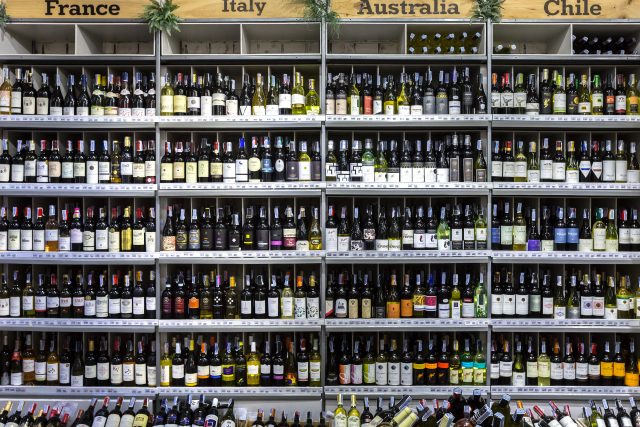Could the Chancellor’s U-turn on alcohol duty have a positive impact on reform?
By Eloise FeildenIndustry bodies have come out in opposition to the new Chancellor’s decision to reverse the freeze on alcohol duty set by his predecessor. But could the U-turn give the drinks trade leverage on duty reform? db investigates.

On the face of it, the Chancellor’s reversal of the alcohol duty freeze is a “huge blow” to an industry which is already bracing itself for vastly increased costs as part of the duty reform set to take place in August 2023.
Miles Beale, chief executive of the Wine and Spirits Trade Association (WSTA), called the news “extremely disappointing”, deeming it “yet another change of plans which will cause disruption to UK wine and spirit businesses who have spent the last two years being bounced from one crisis to the next”.
He stressed that “freezing alcohol duty does not have a negative impact on Treasury coffers”, despite the Chancellor’s claim that reversing the freeze in duty would save the government £600 million a year.
Reversal of the planned freeze will create fallout for the nation’s wine producers as well as its hospitality businesses and trade bodies.
Simon Thorpe MW, CEO of WineGB, told the drinks business this morning that while he hopes the latest Chancellor’s moves would put an end to uncertainty for the UK’s wine producers, his decision to reverse the freeze on duty was “disappointing”.
He said: “There is obviously a great deal of uncertainty and anxiety around the overall economic situation, and it is therefore welcome that the new Chancellor’s moves look to have created some form of calm, at least in the near term. It’s vital for businesses to have clarity for planning purposes, and we look forward to further announcements in the coming days which will hopefully provide that.
Partner Content
“However, it’s disappointing for the wine industry that the freeze on excise duty has been lifted. Wine is already highly taxed, so further increases will put yet more pressure on the pockets of consumers who are looking to buy local and enjoy great wines produced in this country.”
The new proposed duty rate set to be implemented in February 2023, closely followed by implementation of former Chancellor Sunak’s duty reform which is due the following August.
Hal Wilson, managing director of Cambridge Wine Merchants, believes that the Chancellor’s latest move could give the industry leverage to lobby against the upcoming reform, which would have a more devastating effect on the trade.
“The idea of implementing a big duty rise followed six months later by the introduction of a duty reform policy would be materially damaging for the wine trade,” he told db. “At least it is quite easy for MPs to understand the impact two tax hikes in six months will have on the hospitality and retail industries, reeling as they still are from Covid, Brexit, and the cost of energy crisis. I think that gives us some reasonable grounds to ask government to think about our business sectors.”
Wilson described the duty rise as “the lesser of two evils”, describing the reform policy as “much more administratively troubling”, particularly when it comes to wine. There has been ongoing frustration with the proposed review of the alcohol duty which was announced at last year’s Budget, and many in the industry argue that the new UK excise duty proposals places an unfair burden on both wine drinkers – in terms of higher taxes relating to other categories – and the trade – through a huge increase in red tape.
“I and many others have been arguing that implementing the proposed duty reform will be massively costly, complex and counter-productive for the Treasury,” he added. “It will probably lead to less rather than more revenue and represents a real threat to wine importers and UK wineries. It was developed to demonstrate our new found freedoms following the UK leaving the EU and always seemed to be as much a ‘Brexit Benefit’ project as based on a desire to simplify the existing duty system.”
However, if trade bodies are able to convince MPs that two tax hikes in six months could put undue pressure on an industry still in recovery, “there is reason to be a little optimistic of a delay and rethink”, Wilson said.
Related news
Data-driven and AI-analytics: the changing dynamics of the fine wine market
Allan Sichel: price readjustment 'necessary’ for upcoming en primeur campaign




